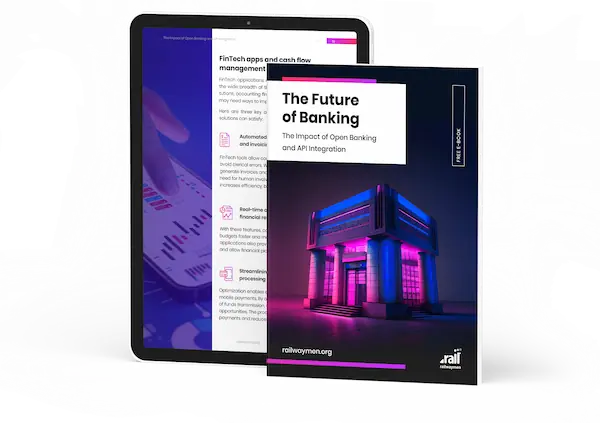The convergence of financial technology (FinTech) and insurance technology (InsurTech) has helped transform the broader financial services industry. The pace of these transformations was accelerated by technological advances, which led to the combination of these two service industries gaining widespread attention. Over time, this out-of-the-box mix began to reveal its potential for innovation and growth, which translated into a range of new opportunities.
Here is the story of how FinTech combined with InsurTech has created new prospects for all market participants.
Table of Contents:
1. What exactly is FinTech and InsurTech?
2. What is driving the development of the FinTech and InsurTech phenomenon?
3. Collaboration opportunities.
4. Challenges and considerations standing in the way of FinTech and InsurTech.
5. Predictions for the future of FinTech and InsurTech.
6. Regulatory and Compliance Considerations.
7. Collaboration with Incumbents and Startups.
What exactly is FinTech and InsurTech?
Both terms thrown around in the public space give only a vague glimpse of the innovations they entail. In the case of FinTech, we have repeatedly emphasized on this blog that it is a support for traditional financial services and includes mobile banking, online payments, online lending and many other benefits that use network connections. InsurTech, on the other hand, is responsible for using modern technology to play a greater role in insurance processes. These processes include telematics, usage-based insurance, claims automation and all digital distribution platforms.

What is driving the development of the FinTech and InsurTech phenomenon?
It is difficult to point to a single factor that determines increased investment in FinTech and InsurTech. Nevertheless, one can see some correlations that partly contribute to the popularization of both concepts in the public space. First of all, the changing expectations and habits of customers. The modern customer demands personalization and solutions to his dilemmas through a personalized path. This is particularly evident in the insurance industry, where benefits are customized for a specific case. What's more, technological developments have given the convergence of FinTech and InsurTech a boost. Data analytics, artificial intelligence, machine learning - who among us heard of these concepts just a dozen years ago. Probably not many people, and today these are leading developments that are leading to a technological revolution that affects the future of everyone.
.jpg?width=1200&height=801&name=pexels-rdne-stock-project-7821684%20(1).jpg)
The new technology described allows insurers and financiers to make bolder decisions based on huge amounts of data for analysis and risk assessment. In addition, support from modern systems and clearly defined regulations have led to better cooperation and interaction towards FinTech and InsurTech players. The interpenetration of these two industries is making the insurance landscape more powerful. This is all due to advanced data analytics and machine learning algorithms that allow more accurate risk assessments to be undertaken. As a result, offers become more personalized and responsive to customer needs. Digitization is also reflected when it comes to managing policies and running billing processes, as they are more efficient and user-friendly.
Collaboration opportunities
The convergence of FinTech and InsurTech provides the financial as well as insurance communities with many opportunities for collaboration. Especially in the case of established insurers, one can see how they are drawing on FinTech technologies, flexibility and a customer-centric approach. Through skillful collaboration, one can see the development of new products, improved customer service and experience, and operational efficiencies. In the case of the financial world, the benefits can be seen in terms of industry knowledge, distribution networks and extensive regulatory experience with traditional insurers.
.jpg?width=1200&height=801&name=pexels-andrea-piacquadio-3760067%20(2).jpg)
Challenges and considerations standing in the way of FinTech and InsurTech
Not everything described here necessarily has an easy path to implementation. As with many projects in the path of FinTech as well as InsurTech industry representatives, there may be demanding challenges. Among these, regulatory compliance and data privacy must be particularly leaned into. Additionally, it is important that integration with legacy systems and data interoperability are taken into account during implementation work. Without taking all of the above factors into account, cooperation will certainly not be effective, and will additionally generate all sorts of obstacles.
Predictions for the future of FinTech and InsurTech
The future that lies between FinTech and InsurTech promises to be extremely promising. The technological advances taking place before our eyes are generating many innovations. Especially in the case of phenomena in the form of blockchain, the Internet of Things (IoT) and the recently popular artificial intelligence.
Blockchain will be reflected in the field of claims processing and policy management through smart contracts and protected data sharing. IoT devices will provide risk assessment and personalized pricing in real time. Meanwhile, the role of artificial intelligence in the coming transformation will be to automate claims processes, assess risk based on real-time data, and influence customer satisfaction by delivering the capabilities they expect.

Regulatory and Compliance Considerations
Addressing regulatory and compliance issues is crucial as the nexus between fintech and InsurTech develops further. diverse jurisdictions have diverse regulatory environments, and insurance businesses must maneuver through intricate frameworks to maintain compliance with pertinent laws and regulations. Regulations governing data protection and privacy, such as the General Data Protection Regulation (GDPR), place stringent restrictions on how personal data is handled and processed. To protect consumer information and adhere to legal requirements, InsurTech companies must establish strong data governance and security mechanisms.
Collaboration with Incumbents and Startups
Collaboration between established companies and startups is essential to maximizing the potential of FinTech and InsurTech convergence. Partnering with InsurTech firms may help traditional insurance businesses inject their operations with innovation, agility, and customer-centric methods. New business models, innovative technology, and the acceleration of activities for digital transformation can all result from this collaboration. On the other side, startups can benefit from existing insurers' regulatory assistance, access to established customer bases, and important industry expertise. Collaboration between these two organizations has the potential to promote an innovative culture and advance the sector.

Learn more about the FinTech industry from the latest e-book by Railwaymen
If you want to know what the future holds for banking and related financial sectors in the coming years, then be sure to check out the latest e-book from Railwaymen, "The Future of Banking: The Impact of Open Banking and API Integration." It's an interesting document in which, in addition to the aforementioned predictions, you'll also find expert opinions and real-life examples of projects that are adapting to the coming changes. Join the ranks of the FinTech revolution today!
Discover our newest e-book
Are you concerned about the future of banking and how it will affect the entire industry? Look no further than our e-book "The Impact of Open Banking and API Integration on the Future of Banking". This comprehensive guide will provide you with all of the information you need to stay ahead of the curve in this rapidly changing landscape. Find out what kind of future is being written for the FinTech industry and how to best prepare your company for it.
DOWNLOAD NOW


%20(1).jpg)



